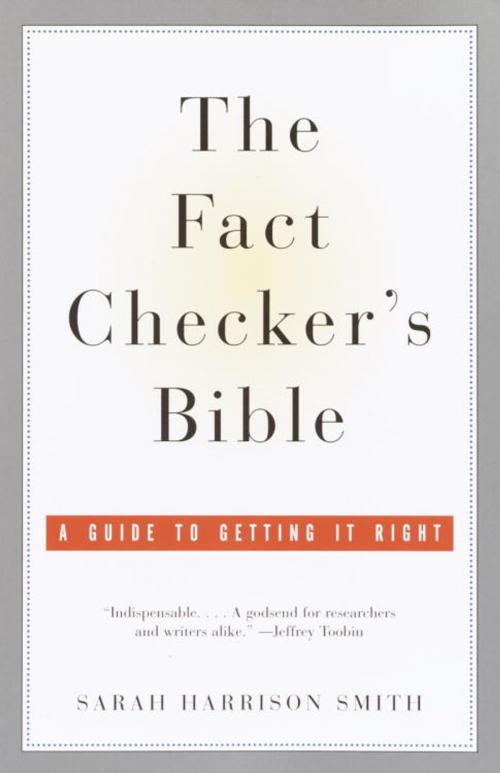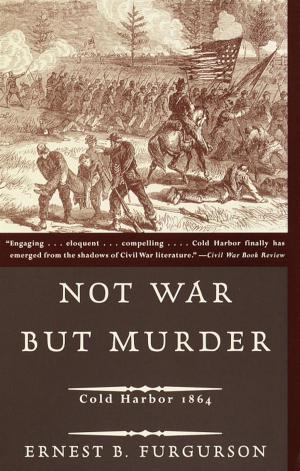The Fact Checker's Bible
A Guide to Getting It Right
Nonfiction, Reference & Language, Language Arts, Writing & Publishing, Editing & Proofreading, Reference, Guides & Handbooks| Author: | Sarah Harrison Smith | ISBN: | 9780307428547 |
| Publisher: | Knopf Doubleday Publishing Group | Publication: | December 18, 2007 |
| Imprint: | Anchor | Language: | English |
| Author: | Sarah Harrison Smith |
| ISBN: | 9780307428547 |
| Publisher: | Knopf Doubleday Publishing Group |
| Publication: | December 18, 2007 |
| Imprint: | Anchor |
| Language: | English |
These days fact-checking can seem like a lost art. The Fact Checker's Bible arrives not a moment too soon: it is the first—and essential—guide to the important but increasingly neglected task of checking facts, whatever their source.
We are all overwhelmed with information that claims to be factual, but even the most punctilious researcher, writer, and journalist can sometimes get it wrong, so checking facts has become a more pressing task. Now Sarah Harrison Smith, former New Yorker fact checker and currently head of checking for The New York Times Magazine explains exactly how to:
*Reading for accuracy
*Determine what to check
*Research the facts
*Assess sources: people, newspapers and magazines, books, the Internet, etc.
*Check quotations
*Understand the legal liabilities
*Look out for and avoid the dangers of plagiarism
For everyone from students to journalists to editors, the methods and practices outlined in The Fact Checker’s Bible provide both a standard and a working manual for how to get the facts right.
These days fact-checking can seem like a lost art. The Fact Checker's Bible arrives not a moment too soon: it is the first—and essential—guide to the important but increasingly neglected task of checking facts, whatever their source.
We are all overwhelmed with information that claims to be factual, but even the most punctilious researcher, writer, and journalist can sometimes get it wrong, so checking facts has become a more pressing task. Now Sarah Harrison Smith, former New Yorker fact checker and currently head of checking for The New York Times Magazine explains exactly how to:
*Reading for accuracy
*Determine what to check
*Research the facts
*Assess sources: people, newspapers and magazines, books, the Internet, etc.
*Check quotations
*Understand the legal liabilities
*Look out for and avoid the dangers of plagiarism
For everyone from students to journalists to editors, the methods and practices outlined in The Fact Checker’s Bible provide both a standard and a working manual for how to get the facts right.















